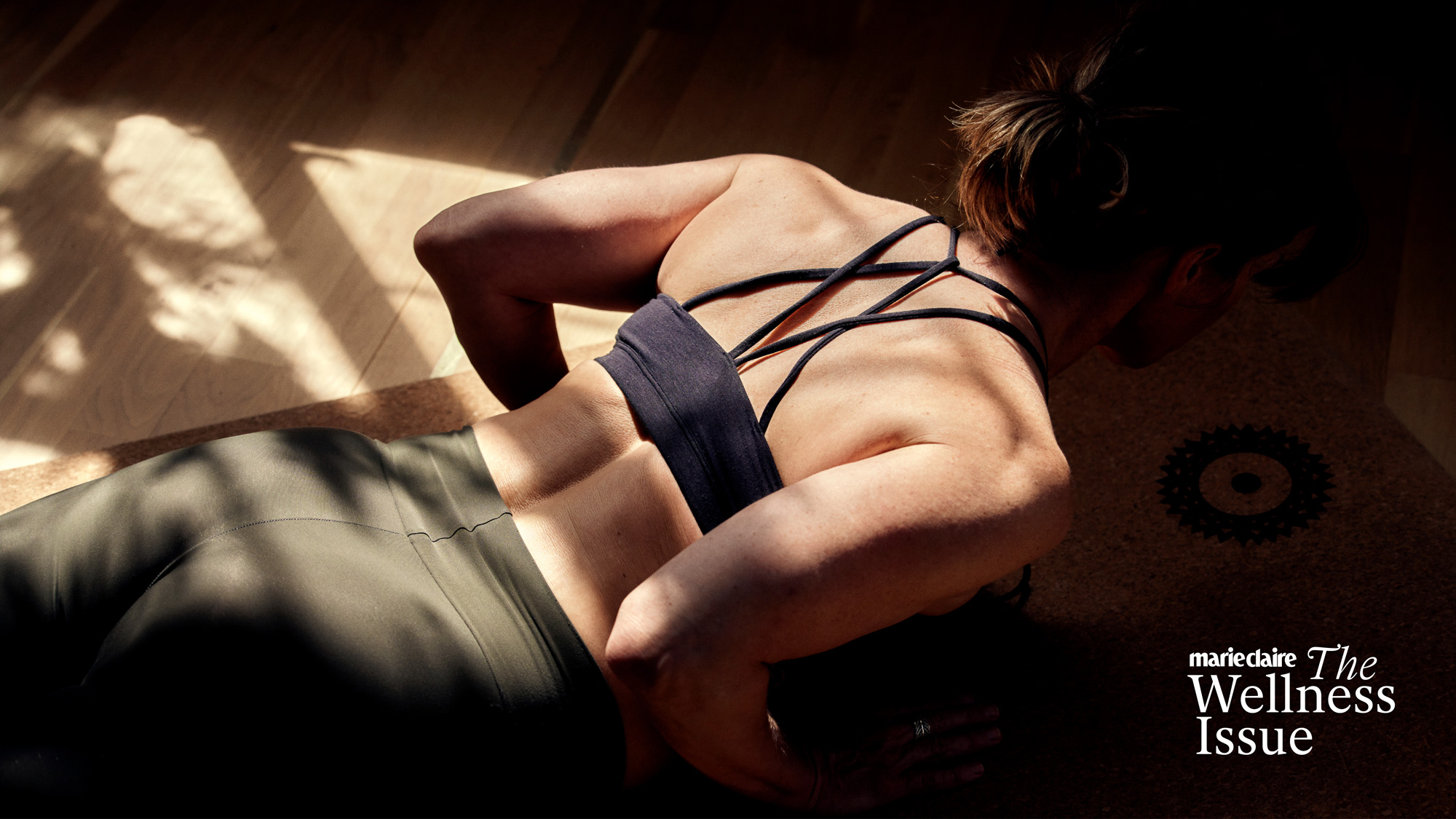
Celebrity news, beauty, fashion advice, and fascinating features, delivered straight to your inbox!
You are now subscribed
Your newsletter sign-up was successful
Ever heard of mindful movement? In short, it describes an approach to working out that takes into account how both your mind and body are feeling - think finding a form of movement and working out that you genuinely enjoy.
Several studies - including this 2018 paper published in the Psychology of Sport and Exercise journal - have found being more mindful of how you move helps lower both stress and anxiety. Think about it - what if, instead of dreading your next workout and seeing it as a chore, you looked forward to the sessions as valuable alone time?
MC UK cover star Zoe Saldana reflects on finding time to move her body each day in our new cover interview, chatting about how moving mindfully and what feels good sets her up for the day ahead. And while it's not a novel or new concept, it's one we’re likely to all-too-quickly forget in amongst hectic schedules and work lives. So what if we told you mindful movement is actually key to getting the most from your home workouts and gym sessions?
We've spoken to three qualified experts to break it down further for you and explain how, physically and psychologically, it could be a seriously good move for both your health and fitness. Keep scrolling, and do bookmark our guides to cycle mapping, reframing negative thoughts and self care ideas for later, while you're here.
What is mindful movement?
Mindful movement simply refers to doing any exercise - be that weight training, high intensity interval training or even walking- mindfully. By mindfully, we mean being both present in the workout and actively looking forward to it.
Olivia Brierley of Mindfulsoul Pilates shares that it's a way of looking inwards at what your body needs. "It's listening to those internal cues and using them to determine what practice and movement to engage with that day, instead of following the latest fitness trend," she explains.
Think of it this way: mindful movement is a tool that can be used to help guide and navigate you through both workouts and day-to-day life.
Celebrity news, beauty, fashion advice, and fascinating features, delivered straight to your inbox!
So how does this lead to fitness gains, exactly? It's a mindset thing. The more you dread a workout, the less likely you are to smash your session, or even get out of bed for it. "Mindful movement is the true essence of self-care and practicing mindfulness generally," Brierley explains.
It's skipping the morning run because actually, you're tired and you know you'll feel better for getting more sleep. Or, it's acknowledging that despite the temptation to snooze your alarm, a quick 20-minute jog will actually energise you for the day.
Mindful movement is the ability to be mindful when it comes to exercise, and practice both perspective and self-compassion when it comes to working out.
It's also just a fancy term that basically means be kind to yourself and you'll reap the fitness rewards. Less stress and more rest are only ever a good thing. Trust us when we say - it's game-changing.
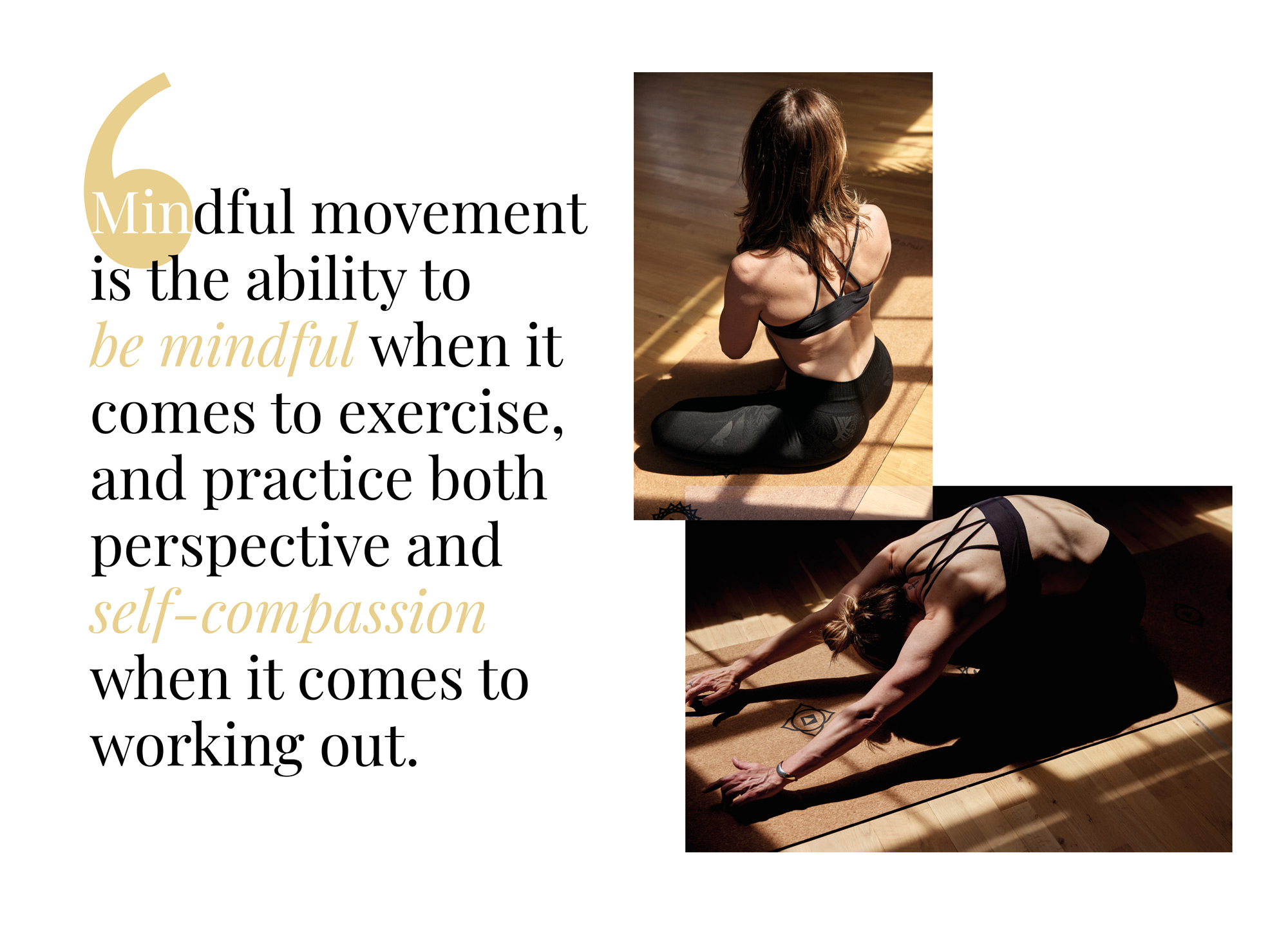
Why is working out mindfully important?
You're far more likely to get results from a workout you actually enjoy doing, right? So, by approaching all movement with an element of mindfulness - am I in the right mood to do this today? Is this the right workout? Would rest serve me better? - you're respecting your body and will, in turn, get better gains from your harder workouts when you do get around to them.
PT Lillie Bleasdale of PASSA puts it simply:"If you’re working out with a method you don’t enjoy, then you’re far less likely to adhere to your training," she shares.
And, according to Victoria Sky, a registered Senior Yoga Teacher with Yoga Alliance Professionals and the director of Tree Living Yoga, practicing mindfulness in all areas of your life can be incredibly rewarding.
"Keeping a calm mind can actually retrain your auto responses," she explains. "Then, when you encounter everyday hiccups, you can quickly recover your state of equilibrium."
What are the pros of mindful movement?
So you wake up and planned to do a HIIT session, but your DOMS are off the chart and you'd really like some extra time in bed. PSA: you'll feel much better if you listen to your body and go for a walk, instead. Remember, movement is movement.
Similarly, if you know you're making excuses not to exercise, give yourself a pep talk and get up and go.
Brierley shares that mindful movement is great for achieving the best results possible, as if you don't force yourself through a workout you really don't fancy doing, you'll give all your sweat sessions your full attention.
Plus, you'll likely figure out what works best for you and your body. "There's so much information about which exercise is best for mind and body," she explains. "Often a high-intensity workout is people's go-to exercise, but actually, opting for a low impact workout style could benefit your body more."
Try this: Take the pressure off for a week and see how much you enjoy your workouts. Trust us. "For example, if you feel lethargic, your exercise motivation might be non-existent. A 20-minute low-intensity round of Pilates exercises will give you a short, sharp energy boost," Brierley explains.
On the other hand, if you are feeling stressed, a class that helps you to slow down both physically and mentally may be more your bag.
Mindfulness generally invites freedom from overthinking and allows us to be in a feeling, shares Sky. "It also lowers stress and anxiety and lifts your mood," she explains. "Not just that, but it gives you an insight into how and when to push your body in tough workouts, or manage those difficult thoughts during long runs."
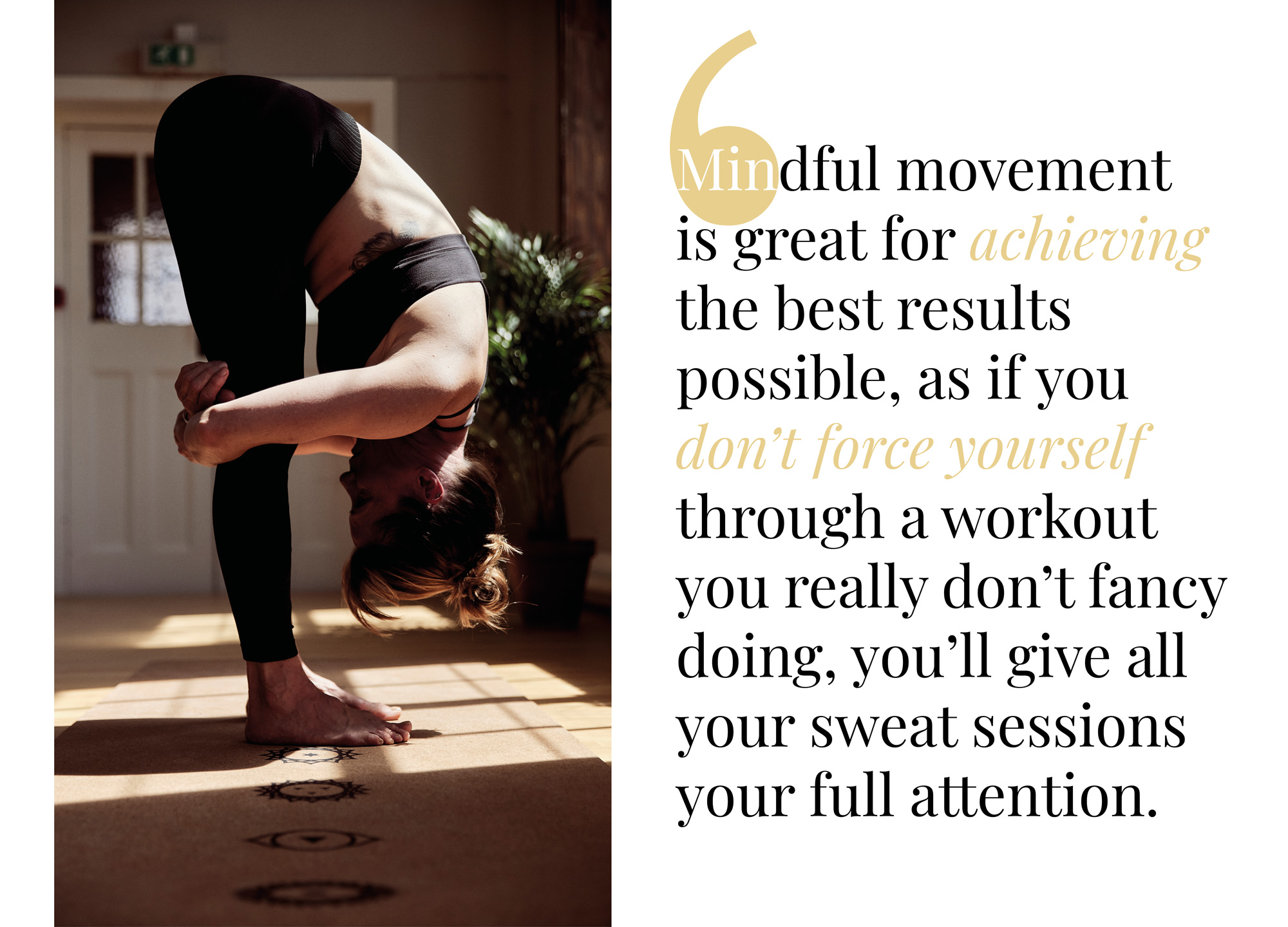
What are the cons of mindful movement?
Are you someone that's always on the go and operating at one hundred miles an hour? Then it may take a few goes to change gear and relax into being present, Sky shares. "But I promise it’s worth the effort of persisting," she explains.
Still not quite sure you get it? "Mindful movement is more of an active decision into how you wish to perform exercise," shares Brierley. "It's a lifestyle change, and after a while, it becomes intuitive."
And remember, mindful movement looks different for everyone. You may best release your stress by smashing out a HIIT workout and prefer to go for a jog when you're feeling low energy. Every individual - and every body - is different.
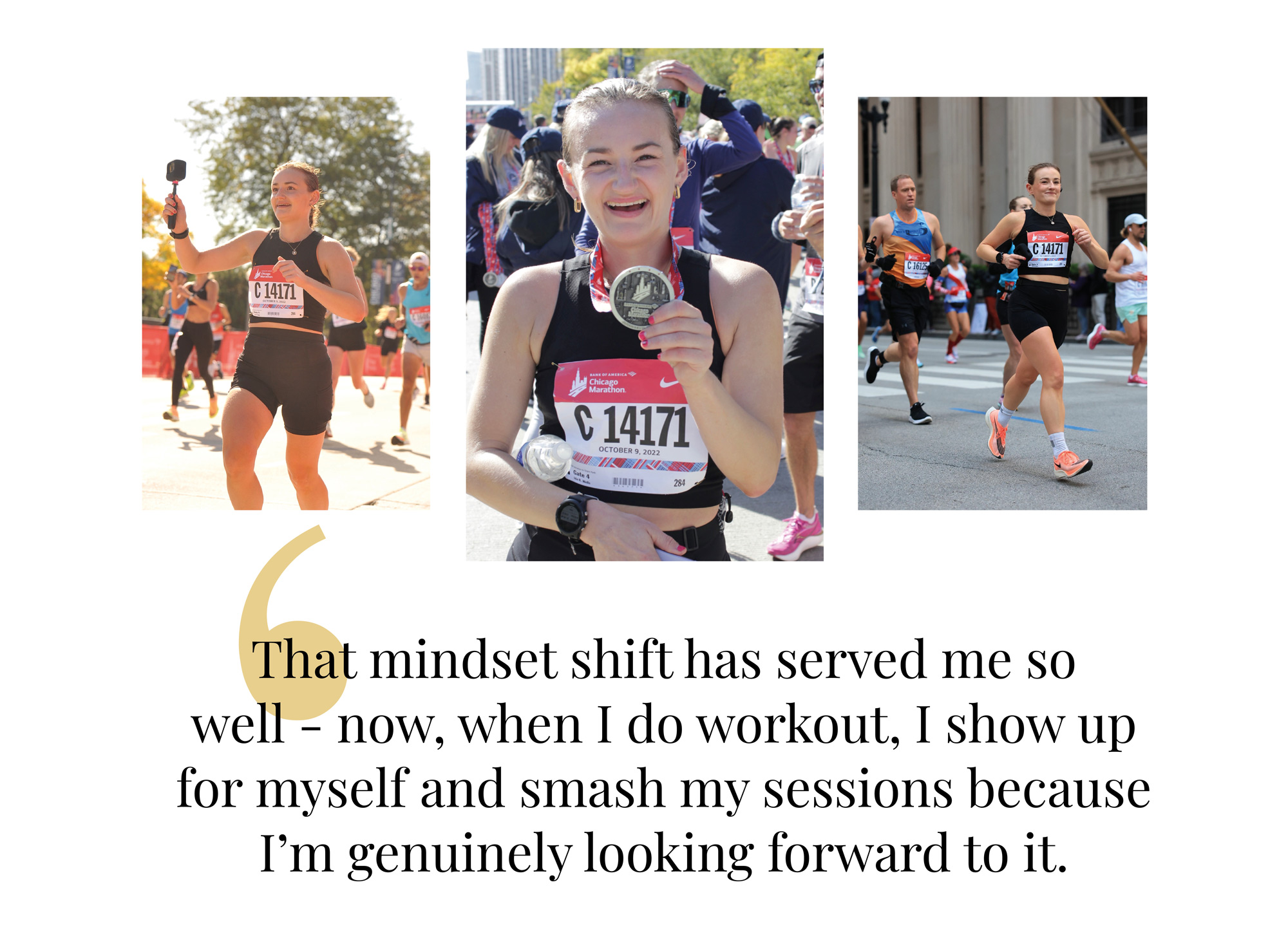
Marie Claire UK's health editor Ally Head on why stopping sweating the small stuff massively improved her fitness.
'I used to be one of those people who got up at 6.30am every morning to run or strength train. Sure, I looked like I had my shit together to other people. But to those who knew me best, I was burnout, fatigued and pretty bloody exhausted.'
'In 2020, I started training with a run coach and if anything, he's taught me that less can very often be more. I've learnt the hard way that you need rest to be able to better your fitness levels, and working out everyday doesn't allow for that.'
'I now run three or four times a week, and strength train once or twice. I rarely do more than five workouts - it's more than enough. But the best bit? My schedule is actually really flexible, and if I skip a workout, I no longer feel guilty.'
'That mindset shift has served me so well - now, when I do workout, I show up for myself and smash my sessions because I'm genuinely looking forward to it. Sadly, I can't say I felt the same this time two years ago. Perhaps unsurprisingly, chilling out a bit has led to massive fitness gains - I've taken nearly an hour off my old marathon PB.'
'My top tip: if you don't fancy a workout, don't do it. Why not try a stretch or some morning steps instead? Similarly, learn to tune in to the little lazy voice in your head - we all have one - and distinguish when your body really needs rest. Sometimes smashing that workout is the best thing you can do to set up your day to a positive start.'
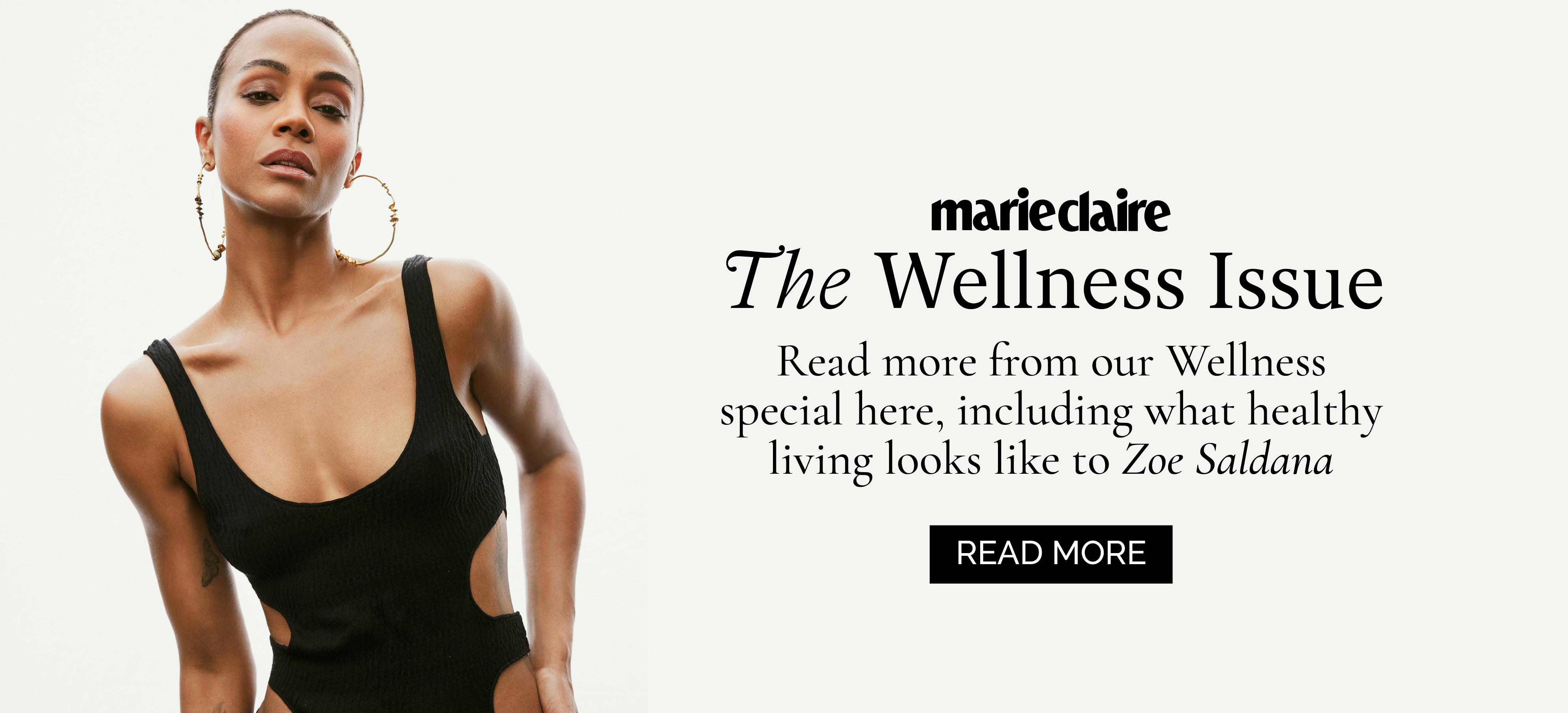

Ally is Marie Claire UK's Senior Health and Sustainability Editor, a well-regarded wellness expert, ten-time marathoner, and Boston Qualifying runner.
Utilising her impressive skillset and exceptional quality of writing, she pens investigative, review and first-person pieces that consistently demonstrate flair and originality.
As well as writing, Ally manages a team of freelancers, oversees all commissioning and strategy for her pillars, and spearheads the brand's annual Women in Sport covers, interviewing and shooting the likes of Mary Earps, Millie Bright, and Ilona Maher. Shortlisted for three BSMEs and winning one in 2022, Ally lives and breathes her verticals: her eye for a story and connections within the wellness sphere are unrivalled. Follow Ally on Instagram for more.
